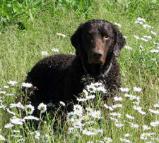
This is a placeholder text
Group text
by Myracle on 07 September 2010 - 18:09
What dog books in general do you like?
_____
For myself:
The German Shepherd Dog In Word and Picture, by CPT Max von Stephanitz
Training Dogs, A Manual, by COL Konrad Most
Don't Shoot the Dog, by Karen Pryor
Animals In Translation, by Temple Grandin
The Story of Edgar Sawtelle, by David Wroblewski
by darylehret on 08 September 2010 - 00:09
by HBFanatic on 08 September 2010 - 02:09
Although I will highly recommend Karen Pryor to anyone that wants to understand how to shape behaviors.
Having said this, I do recommend a few Pryor endorsed books for beginners.
I also think that if you want to talk training with others and either praise or bash methods, read all you can (not just the first few pages) and practice a bit before going out and discussing them.
by darylehret on 08 September 2010 - 02:09
by Myracle on 08 September 2010 - 02:09
Owning, and considering a book valuable, is not the same as agreeing with the principles espoused therein.
I consider Konrad Most's book of historical significance to the breed, and to training in general. Ditto for v. Stephanitz's.
And I agree, no book is a necessity for training. Getting out there and actually doing it is what will make the difference.
But OF the books that exist, which do you enjoy and/or consider valuable?
by darylehret on 08 September 2010 - 03:09
So then, how do you apply the two? That's all I'm curious about, if you could furnish an example. You could almost say, there's as many training styles as there are trainers, and everyone has something to learn, even from those of less experience than themselves.
Many of the books I find pertinent and hold personal value for, aren't even "canine" oriented.
by Myracle on 08 September 2010 - 03:09
As stated elsewhere, I use marker training, with corrections for proofing well into the program.
by HBFanatic on 08 September 2010 - 03:09
Clicking with your Dog
Clicking for Joy
How Dogs Learn
Koehler
True Unity
Think Harmony
Horsemanship through Feel
Various Schutzhund Books including M. Ellis, Hilliard, etc
The Intelligence of Dogs
Working Dogs
And a whole list of others...in no particular order others than the very first one.
Now, on agreeing or not agreeing with the books. If you want a true picture of a method, try to stick with it as close as possible in the beginning. Give it a chance. Not too much thinking involved. Try to "get it". Then go and do the same with another method. Give it a chance and honestly try to "get it".
After a while it come naturally that you will start mixing them up depending on the animals you work with and the personality of the trainer. Someone that is more inclined to train positive may give the more compulsive methods a try but will quickly either go back to positive or adapt the more compulsive to their positive way of thinking. A leopard can't change his spots completely. Same goes the other way around. A great trainer can mix or not totally depending on the animal he/she is dealing with. And make it work. To me, this is also the reason why it does not only take experience but also time to gather this experience to make a good trainer.
by ShelleyR on 08 September 2010 - 03:09
by darylehret on 08 September 2010 - 11:09
Someone mentioned a Dean Calderon video being produced. Would it's focus be tracking?
Contact information Disclaimer Privacy Statement Copyright Information Terms of Service Cookie policy ↑ Back to top




